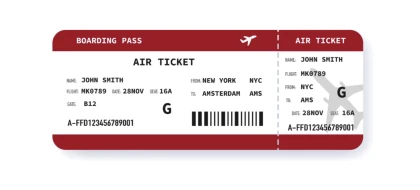What Qualifies as a Business Trip?
A business trip refers to a temporary assignment in a different city or country for work-related purposes. These trips are often for meetings, conferences, client visits, or project implementation.
Employees whose roles involve frequent travel — such as sales reps, auditors, or field consultants — typically don’t qualify for separate business trip benefits, as travel is considered a routine part of their job.
How Is Salary Paid During a Business Trip?
In most countries, employees continue to earn their regular salary during business travel, whether they are paid hourly, weekly, or on a monthly basis. If an employee works standard hours during the trip, they are paid accordingly — there’s no special formula or average wage calculation, as in some other systems.
Example:
If an employee earns $30/hour and works 8 hours a day, they would receive $240 per day during a 3-day trip, totaling $720. This is standard pay, not an extra allowance.
Salary remains consistent unless:
- The employee works outside regular hours (eligible for overtime),
- The trip falls on weekends or public holidays,
- Special terms are outlined in the company’s travel policy or union agreements.
Reimbursement for Business Travel Expenses
In addition to regular pay, companies reimburse employees for all necessary travel costs, including:
- Transportation (flights, trains, local taxis)
- Lodging (hotel stays)
- Meals or incidental expenses
Employers may issue a travel advance, but it’s more common (especially in the U.S. and Europe) to reimburse expenses after the trip. Employees typically submit an expense report with receipts.
If total expenses are lower than the advance, the unused funds must be returned. If they exceed it, the company covers the difference.
Per Diem: Daily Allowance for Meals and Incidentals
Many organizations offer a per diem, a fixed daily allowance for food, local travel, and other minor expenses. The per diem rate varies based on:
- Destination (domestic or international)
- Company policy or government guidelines (e.g., GSA rates in the U.S.)
Employees usually don’t need to submit receipts for per diem usage — the amount is treated as a flat daily rate.
Overtime Pay During Business Travel
Business trips often involve longer-than-usual workdays. For example, an employee may attend meetings during the day and prepare reports in the evening. In such cases, overtime pay applies if the employee exceeds their standard working hours.
- 1.5x pay for hours beyond the standard daily schedule (typically over 8 hours/day).
- 2x pay may apply for extended overtime or specific contractual situations.
Example:
If an employee with a $30 hourly wage works 12 hours in one day, they may earn:
- $240 for the first 8 hours,
- $180 for 4 overtime hours (1.5x rate),
- Total: $420 for the day.
Alternatively, some companies offer compensatory time off instead of overtime pay, especially in salaried roles.
What If the Business Trip Falls on a Weekend or Holiday?
If employees work on weekends or public holidays during a trip, companies typically offer:
- Premium pay — often 1.5x or 2x the normal rate, depending on policy.
- Time off in lieu — employees get a compensatory day off after returning.
If the employee is not working, and the day is used purely for travel or rest, they usually receive their regular salary and/or per diem but not premium pay.
Key Takeaways
- Employees receive their regular pay during business travel.
- Additional expenses like transport and lodging are reimbursed.
- Per diem covers daily incidentals without requiring receipts.
- Overtime and weekend work are compensated per company or legal policies.
- Employers may offer extra pay or time off for work on holidays or weekends.





